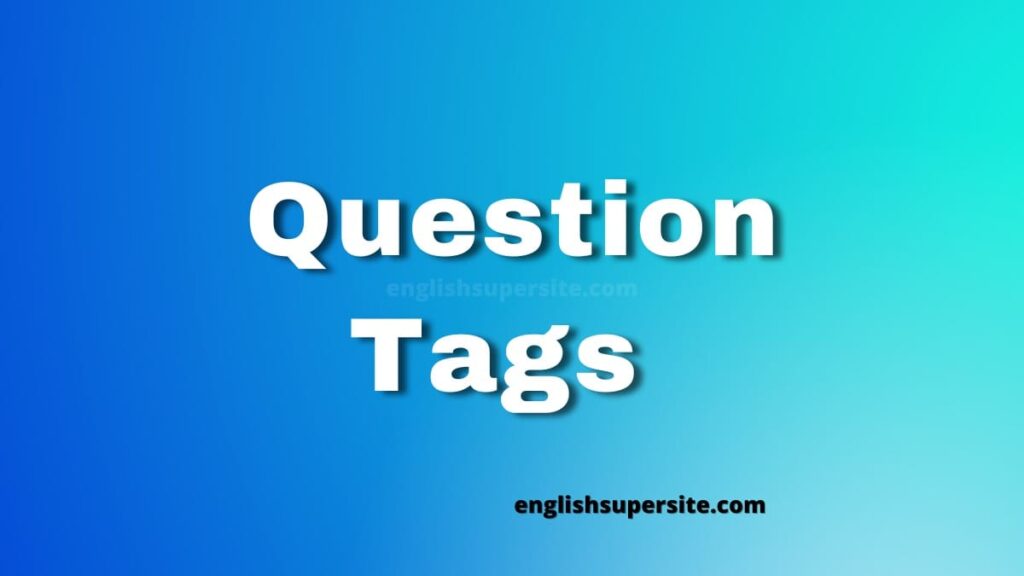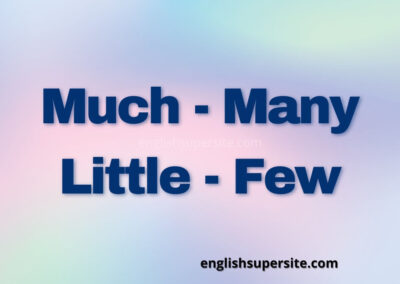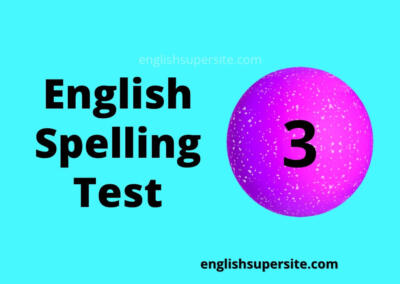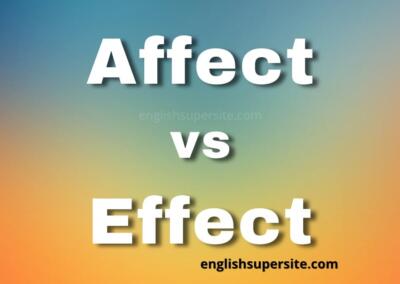
Question Tags Rules, Forms, Exceptions, and Examples
Also known as Tag Questions, question tags are short questions added to the end of a sentence or statement. We use it to seek confirmation, clarification, agreement, or a response from the listener.
Rules
The question tag usually mirrors the verb in the statement.
- If the statement is positive, the tag is negative.
- If the statement is negative, the tag is positive.
Forms
Positive Statement + Negative Tag
- He is an engineer, isn’t he?
- She is a doctor, isn’t she?
- It is a beautiful day, isn’t it?
- They are coming to the party, aren’t they?
- You are my neighbor, aren’t you?
- She is Pamela’s mother, isn’t she?
- He is coming to the party, isn’t he?
- The bus stop is over here, isn’t it?
- He can swim, can’t he?
- You can play soccer, can’t you?
- We should leave now, shouldn’t we?
- They can help us, can’t they?
- They were impressed by the sale, weren’t they?
- They could hear me, couldn’t they?
Positive statements without the auxiliary verb, we use don’t, doesn’t or didn’t
- They arrived on time, didn’t they?
- He speaks English, doesn’t he?
- They like the new idea, don’t they?
- I said that already, didn’t I?
- He always gives a good impression, doesn’t he?
- Mark likes cheese, doesn’t he?
- This will work, won’t it?
Negative Statement + Positive Tag:
- He isn’t here, is he?
- Mary isn’t working on that, is she?
- Your father doesn’t like to have fun, does he?
- You haven’t been there, have you?
- You have finished your homework, haven’t you?
- We haven’t had so many people coming before, have we?
- He just can’t get this presentation right, can he?
- You didn’t see the movie, did you?
- I don’t have to finish it this week, do I?
- They won’t mind, will they?
- She won’t mind that, will she?
- He won’t forget, will he?
- This will not work, will it?
- You won’t mind if I borrow your pen, will you?
- This situation isn’t getting any better, is it?
- There is nothing wrong with it, is there?
Attention:
Pay very close attention to the tense of the auxiliary verb in the phrase or statement when forming the question tag.
If there is no auxiliary verb, use “do” or “does” for the present simple and “did” for the past simple.
Exceptions
Imperative Sentences
For imperative sentences, the question tag is “will you?” or “won’t you?”:
- Open the window, will you?
- Close the door, will you?
- Take a sit, won’t you?
I’m (I am)
If we use I am in the statement:
Positive the tag is “am”
- I’m not being too personal, am I?
- I’m not the right person for the job, am I?
- I am never late, am I?
Negative the tag is “aren’t”
- I’m really smart, aren’t I?
- I’m on time, aren’t I?
- I’m intelligent, aren’t I?
Statements with Negative Adverbs
We have a negative sense when we use the adverbs rarely, hardly, seldom, and never. Therefore the question tag is usually positive:
- She rarely attends meeting on time, does she?
- We have never seen that movie, have we?
- You hardly ever forget your keys, do you?
Let’s (Let us)
When “let’s” is used, the question tag is “shall we?”
- Let’s go, shall we?
- Let’s dance, shall we?
- Let’s not talk about his subject, shall we?
Question tags can be used for a variety of purposes, such as seeking confirmation, emphasizing a point, or asking for a response. Understanding how they are formed and used improves communication and reassures grammatical accuracy.
Statements with Everything, Something and Nothing as a subject
We use “it” in the question tag
- Something happened to her, didn’t it?
- Nothing is wrong, is it?
Conclusion
Question tags can be used for a variety of purposes, such as seeking confirmation, emphasizing a point, or asking for a response. Understanding how they are formed and used improves communication and reassures grammatical accuracy.
Now test your knowledge with these exercises!
Study Also:
Abbreviations Adjectives Adverbs Articles Career Comparative Confusing Words Conjunctions Exercises Future Continuous Future Perfect Future Perfect Continuous Grammar Interjections Irregular Verbs Learn English Linking Words Listening Exercises Mistakes Nouns Past Continuous Past Perfect Past Perfect Continuous Plural Prepositions Present Continuous Present Perfect Present Perfect Continuous Pronouns Pronunciation Question Tags Quiz Quotes Reading Simple Future Simple Past Simple Present Spelling Strategies Superlative Tests Transition Words Verbs Verb Tenses Vocabulary
Share with your friends!



